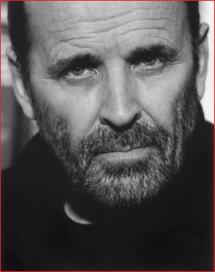On Hearing of a 98.2% Chance of Heavy Precipitation a Bot Considers the Question of Negative Probability
Published in the 2019 Spring edition of North American Review, this poem is the opening piece of a long sequence I am currently writing and which works to construct what I would call a posthuman mythology. Negative Probability is a concept in which some physicists, notably Dirac and Feynman, place great credence, and because these poems will explore increasing levels of unlikelihood, and what once seemed to be impossible, this therefore seemed a perfect place to start. The ensuing sequence will indeed build a mythology around the central conceit of a bot speaking, or attempting to speak, or failing to speak. Sometimes, it will sound like many bots speaking; on a deeper level it will be the shifting tones and learned evasions of one evolving, sometimes evasive, sometimes bewildered, sometimes overweening, sometimes hubristic, singular bot.
Such characterisation will hold up a mirror to human vagaries and consistencies from the viewpoint of 'someone’ (or perhaps more accurately ‘something’) regarding them essentially for the first time, often finding them difficult, if not impossible to fathom. In this exploration, nothing will be taken for granted. The poems will nod to what was once known as English Martianism, but will attempt to take it further than it reached, striking as many acute angles as possible. Poems such as “A Future Robot Considers the Human Heart,” “A Future Bot Projects onto Itself a Likeness of Darwin,” and “A Future Bot Addresses the Mob Boss Released from Jail at a Hundred Years of Age,” (all recently published in The Kenyon Review) will attempt to achieve exactly that. I am very excited about this sequence. It draws upon the influence of American poetry—notably that of Ashbury, Berryman and Tate, and particularly Jennifer Militello’s fine essay "From the Maternal to the Mechanical—The Struggle Against Sentiment in Contemporary American Motherhood Poetry," published in The American Poetry Review in 2017. Militello’s critical and creative work on the nature of the machine inspired this project.
The diction of these poems is new to me; it throws up a vast range of challenges and allows me to investigate the delight of writing in persona and, in the best possible way, no longer simply to sound like myself. That said, as the poems are written, I inevitably detect whispers of autobiography passing through them. I aim to placate a long standing ambition of being able to incorporate humour into my poetry, humour as a means of tackling more serious concerns, humour that probes, humour that elevates at times a sense of the absurd. These poems will pick up many threads, synthesize influences, and constantly strive for new ways of seeing. Above all else, what I hope for is an entirely new mix of sound, arising from my investigations of programming and code-writing and the linguistic and cultural components out of which an AI sensibility can be imagined and constructed.
 Twice shortlisted for the T.S. Eliot Prize, which is the UK’s equivalent of The Pulitzer Prize, for The World Before Snow (Carcanet) in 2015 and The Blood Choir (Seren) in 2006, Tim Liardet has produced ten collections of poetry to date. He has also been longlisted for the Whitbread Poetry Prize, and has received several Poetry Book Society Recommendations, a Poetry Book Society Pamphlet Choice, an Arts Council England Writer’s Award, Society of Authors Award, a Hawthornden fellowship, three Pushcart nominations, and various other awards. His poems have appeared or are due to appear in Kenyon Review, The New Republic, Slate Magazine, London Review of Books, The Times Literary Supplement, The Poetry Review, Poetry London, New Statesman, The Spectator, The Guardian, The Sunday Times, The Independent, and many other journals. Arcimboldo’s Bulldog: New and Selected Poems appeared from Carcanet in May 2018. He is Professor of Poetry at Bath Spa University, England. View his poetry archive here.
Twice shortlisted for the T.S. Eliot Prize, which is the UK’s equivalent of The Pulitzer Prize, for The World Before Snow (Carcanet) in 2015 and The Blood Choir (Seren) in 2006, Tim Liardet has produced ten collections of poetry to date. He has also been longlisted for the Whitbread Poetry Prize, and has received several Poetry Book Society Recommendations, a Poetry Book Society Pamphlet Choice, an Arts Council England Writer’s Award, Society of Authors Award, a Hawthornden fellowship, three Pushcart nominations, and various other awards. His poems have appeared or are due to appear in Kenyon Review, The New Republic, Slate Magazine, London Review of Books, The Times Literary Supplement, The Poetry Review, Poetry London, New Statesman, The Spectator, The Guardian, The Sunday Times, The Independent, and many other journals. Arcimboldo’s Bulldog: New and Selected Poems appeared from Carcanet in May 2018. He is Professor of Poetry at Bath Spa University, England. View his poetry archive here.
Illustration by: Eric Piatkowski. Piatkowski was raised in Arizona, and after a few years of working in theatre he switched gears and studied illustration at the Pratt Institute. Now in Des Moines, he splits his time between drawing, drawing, and more drawing. Give him a call, he just might be the perfect man for the job. Prints of artwork featured here and elsewhere are available through Etsy at Eric Piatkowski Art.
Recommended
Nor’easter
Post-Op Appointment With My Father
Cedar Valley Youth Poet Laureate | Fall 2024 Workshop





